2021年郴州市初中学业水平考试
英 语
(试题卷)
注意事项:
1.答题前,考生务必将自己的姓名、准考证号写在答题卡和该试题卷的封面上, 并认真填涂和核对答题卡上的姓名、准考证号和科目;
2.选择题部分请按题号用2B铅笔填涂方框, 修改时用橡皮擦擦干净,不留痕迹;
3.非选择题部分请按题号用0.5毫米黑色签字笔书写,否则作答无效;
4.在草稿纸、试题卷上答题无效;
5.请勿折叠答题卡, 保证字体工整、笔迹清晰、卡面清洁;
6.答题完成后, 请将试卷、答题卡放在桌上, 由监考老师统一收回;
7.试题卷中听力技能材料以中速朗读两遍,
本试卷共10页,分四个部分,81小题,满分130分,考试时间120分钟.
I. 听力技能(共两节,满分20分)
第一节 对话理解 (共16小题;每小题1分,满分16分)
听下面的对话,从题中所给的A、B、C三个选项中选出最佳选项。听每段对话前,你将有时间阅读各个小题,每小题5秒钟;听完后,各小题将给出5秒钟的作答时间。
听下面五段对话,每听完一段对话后,回答1个小题。
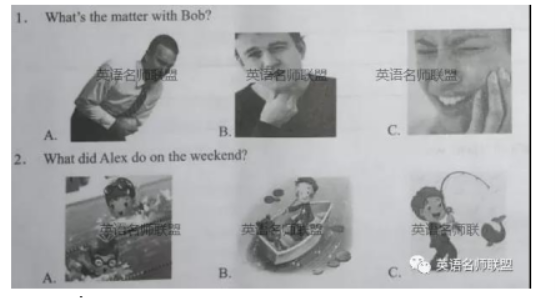
3. What’s the weather like in Beijing?
A. Rainy.B. Sunny.C. Snowy.
4. What’s Mike’s favorite subject?
A. Science.B. History.C. Math.
5. How much is the sweater?
A. $10.B. $13.C. $15.
听第六段对话,回答第6、7小题。
6. Who is going to visit Jeff?
A. Jeff’s cousin.B. Mary’s cousin.C. Mary.
7. When are they going to play tennis?
A. On Sunday.B. On Monday.C. On Thursday.
听第七段对话,回答第8至10小题。
8. What is Lucy doing?
A. She is reading.B. She is writing.C. She is taking lessons.
9. What does the boy want to be?
A. A writer.B. A scientist.C. A teacher.
10. Where is the boy going to work?
A. In Guangzhou.B. In Shenzhen.C. In Shanghai.
听第八段对话,回答第11至13小题。
11. What does Jack usually do in his spare time?
A. He listens to music.B. He plays the violin.C. He goes to the concert.
12. What kind of music does Jack like best?
A. Pop music.B. Country music.C. Rock music.
13. Where are they going tonight?
A. To Moon Theater.B. To Town Cinema.C. To Music World.
听第九段对话,回答第14至16小题。
14. What kind of movies is the boy going to teach?
A. Comedies.B. Documentaries.C. Action movies.
15. What time will the movie begin?
A. At 6:00 p.m.B. At 7:00 p.m.C. At 10:00 p.m.
16. How is the boy going to the cinema?
A. By car.B. By bus.C. By bike.
第二节短文理解(共4小题;每小题1分,满分4分)
你将听到一篇短文,短文后有四个问题。请根据短文内容,在每个小题所给的A、B、C三个选项中选出最佳选项。听短文前,你将有时间阅读各小题,每小题5秒钟;听完后,各小题将给出5秒钟的作答时间。
17. How old is Eliza?
A. 18.B. 17.C. 16.
18. How long does Eliza exercise every morning?
A. For one hour.B. For two hours.C. For three hours.
19. What does Eliza like to eat for breakfast?
A. Fruit and vegetables.B. Orange juice and ice-cream.C. Bread and eggs.
20. How often does Eliza go to the dentist?
A. Once a month.B. Twice a week.C. Three times a month.
Ⅱ. 知识运用(共两节,满分25分)
第一节 单项填空(共10小题;每小题1分,满分10分)
从A、B、C三个选项中选出可以填入空白处的最佳选项。
21. —We have worked for a long time.
—Yeah, let’s go out for a walk. It is ________ useful way to relax.
A. aB. anC. the
22. Our Party was founded in 1921. We’ll celebrate her ______ birthday on July 1st this year.
A. one hundredB. one hundredthC. the one hundredth
23. —May I use your cell phone? I left ______ at home.
—Sure. Here you are.
A. oursB. yoursC. mine
24. —What would you like to drink, Joe?
—I’d like a cup of coffee ______ milk, please. I like the taste.
A. inB. withC. from
25. I think ______ children learn to look after themselves, _____ it is for their future.
A. the earlier; the betterB. the earliest; the bestC. the early; the good
26. —Whose skirt is this?
—It _______ be Carol’s. She is the only girl in the team.
A. mightB. needC. must
27. —I called you last night but nobody answered.
—Oh, I ______ a bath at that time.
A. was takingB. am takingC. have taken
28. Many university graduates go to work in the countryside _______ villagers live a better life.
A. to helpB. helpingC. help
29. —What a beautiful dress! Perfect for you!
—Thank you. It ______ by my mother last month.
A. is madeB. was madeC. made
30. —Could you please tell me ________ the library is from here?
—It’s about fifteen minutes’ ride.
A. how soonB. how longC. how far
第二节 完形填空(共10小题;每小题1.5分,满分15分)
通读下面的短文,掌握其大意,然后从各题所给的A、B、C三个选项中选出一个最佳答案。
One day a professor entered the classroom and told the students they would have a test right away. Then the professor 31 the exam papers. But the students were confused (迷惑的) because there was nothing but just a black dot (点) in the center of the 32 . The professor noticed their facial expressions and told them, “I want you to write about what you see there.”
Although still confused, the students started writing. At the end of the class, the professor took all the answer sheets (答题纸) and started 33 the answers in front of the students. All of them 34 the black dot and tried to explain its position and something like that. After the professor finished reading, the whole class was 35 .
The 36 began to explain, “Don’t worry. I am not going to give you grades for this. I just want you to think about something. Here 37 focused on the black dot instead of the white paper. It is the same as what we do in our lives. The white paper is just like our whole life and the black dot is the problems we face every day. We just care too much about things like a lack of (缺乏) money for beautiful clothes, but we 38 see that these problems are very small compared to our whole life. We should remember that there are more 39 things in life.”
We all live only once. 40 we should focus attention on the truly valuable things.
31. A. gave outB. gave upC. gave away
32. A. clothB. paperC. picture
33. A. writing B. practicingC. reading
34. A. describedB. dependedC. developed
35. A. silentB. activeC. proud
36. A. studentsB. professorC. teachers
37. A. somebodyB. nobodyC. everybody
38. A. alwaysB. neverC. often
39. A. valuableB. ordinaryC. comfortable
40. A. OrB. ButC. So
Ⅲ. 阅读技能(共三节,满分50分)
第一节 阅读选择(共15小题;每小题2分,满分30分)
阅读下面的材料,从每题所给的A、B、C三个选项中,选出最佳选项回答问题或完成句子。
A
阅读下面的图表,完成41—42小题。
The chart below shows the different types of transportation people used to go to work in one European city in 1960, 1980 and 2000.
41. Which type of transportation was the most popular in 2000?
A. The train.B. The car.C. The subway.
42. The chart shows the bus was the most popular transportation _______.
A. in 1960B. in 1980C. in 2000
阅读下面的图表,完成43—45小题。
There are many beautiful train lines around the world. Here are three that are worth travelling.
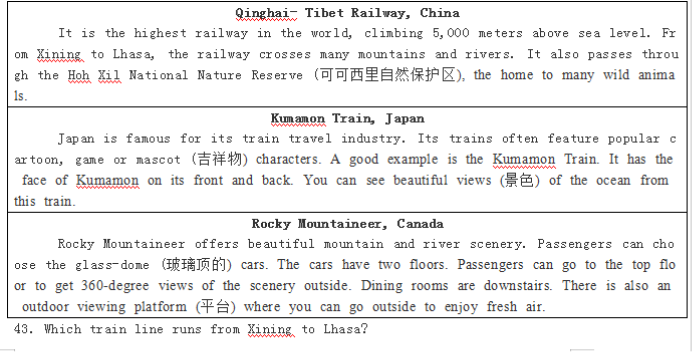
A. Qinghai-Tibet Railway.
B. Kumamon Train.
C. Rocky Mountaineer.
44. What can you do on the Kumamon Train?
A. See many wild animals.
B. See beautiful views of the ocean.
C. Go outside to enjoy fresh air.
45. Where can you get 360-degree views of the scenery outside on the glass-dome cars?
A. On the first floor.
B. On the top floor.
C. On the outdoor viewing platform.
B
On February 20, 2021, Jasmine Harrison became the youngest woman to row (划艇) alone across the Atlantic Ocean. It took the 21-year-old swimming teacher just over 70 days to do it.
Ms. Harrison, who’s from England, didn’t have much experience in rowing long distances (距离). She got the idea three years ago when she happened to be in Antigua.
There she saw the end of the 2017 Talisket Whisky Atlantic Challenge. “I just thought, I want to do this so I’m going to do it.” she said.
Every year, rowers taking part in the Atlantic Campaign set out from the Canary Islands in December and row about 4,800 kilometers across the Atlantic. Some row in teams of two, three or four. Others, like Ms. Harrison, row by themselves.
It wasn’t easy. Every day, Ms. Harrison would row for about 12 hours. She rowed about 20,000 strokes (划) a day.
Ms. Harrison had a smart phone that allowed her to talk with family and friends every day. She had other company along the way. She saw lots of sea life, including some whales. For several days, she was followed by a small group dolphins (海豚). “I was in their environment,” she said. “It was just amazing.”
There was danger, too. Twice, her boat was turned over in the night by large waves. She hurt her elbow quite badly. Another time, she nearly ran into a ship.
Somehow, she kept going. Finally, on February 20, after 70 days, 3 hours and 48 minutes, she reached Antigua —the end of the journey. Ms. Harrison’s rowing has made her the youngest woman ever to row alone across the Atlantic. Before, that record was held by Kaitie Spotz from the USA, who crossed the Atlantic was a 22-year-old in 2010.
46. When did Ms. Harrison get the idea of taking part in the Atlantic Campaign?
A. In 2010.B. In 2018.C. In 2021.
47. Ms. Harrison set out from ________ in the Atlantic Campaign.
A. LondonB. AntiguaC. the Canary Islands
48. What does the underlined word “company” probably mean in Chinese?
A. 陪伴B. 宾客C. 公司
49. Which of the following is TRUE according to the passage?
A. Ms. Harrison is a 21-year-old animal keeper.
B. Ms. Harrison used a smartphone to talk with family and friends.
C. It was easy and safe for Ms. Harrison to finish her journey.
50. What’s the best title of the passage?
A. The 2021 Talisker Whisky Atlantic Challenge.
B. The lovely sea life in the Atlantic Ocean.
C. The youngest woman to row along across the Atlantic.
C
Computers, smartphones, and other machines are the perfect servants. They always do what they are “told”. We usually “tell” them to do things by using a mouse or keyboard. But what if we could just talk to them normally and tell them what to do?
This type of technology, known as voice control or voice recognition (识别), has been shown in films and TV shows since the 1960s. The TV show Star Trek showed some spaceships which could reply to human voice commands (命令). The film 2001: A Space Odyssey showed a computer that human astronauts could talk to. It was mainly used to play chess and repair the astronauts’ spaceship.
On the other hand, real-world voice recognition is used for more everyday tasks. For example, Apple and Amazon made two pieces of voice recognition software (软件). They can be asked to do many things, such as setting alarms and playing music and so on.
One of the nice things about voice recognition is that it can be used when we’re on the go. When you’re driving a car or walking down the street, it’s not convenient or even dangerous to pick up your smartphone and type away on the keyboard. Voice recognition allows you to focus on whatever you’re doing at the moment while still doing other tasks.
Speech recognition software is also helpful to deaf people. It can be used to “listen” to spoken words and turn them into text that deaf people can read. Some speech recognition software can even hear words spoken in one language and then translate them into another language.
51. According to Paragraph 1, how do we usually control machines in daily life?
A. By using body language.B. By talking to them.C. By using a mouse or keyboard.
52. When was voice recognition first shown in films and TV shows?
A. In the 1980s.B. In the 1970s.C. In the 1960s.
53. How does voice recognition help to keep you safe while driving a car?
A. It helps you to focus on what you are doing.
B. It allows you to type on the keyboard more conveniently.
C. It can control your car for a short while.
54. In the last paragraph, what can we infer about the speech recognition software?
A. It can hear words spoken in English and then translate them into Chinese.
B. It can turn text into spoken words for the blind.
C. It can help you do anything that you want to do.
55. Where do you probably read the passage?
A. In a movie ad.B. In a science magazine.C. In a sports magazine.
第二节 语篇补全(5小题;每小题2分,满分10分)
根据短文内容,从短文后的选项中选出能填入空白处的最佳选项。
It is said that the eyes are the windows to our soul. 56. _______ Your eyes need everyday attention.
First, you have to pay more attention to your diet (饮食). 57. ______ It’s good for your eyes. Also, a regular amount of vitamins A and B2 should also be taken.
Second, you must have regular and enough sleep. This relaxes the eye muscles and gives them the rest they need. Sleep can help the body repair its tired tissue (组织). 58. ________ Loss of sleep can give you dark circles under your eyes.
59. ___________Blink (眨眼) your eyes at regular periods to keep your eyes moist (湿润的).
Last, you should treat your eyes correctly. For example, if you get something in your eyes, don’t start rubbing (揉) it. Rubbing is harmful to your eyes. Don’t read or write in poor or bright sunlight because sunlight can cause eye tiredness. 60. _____ Too much reading, writing, watching television or working on a computer can also cause eye tiredness, so rest is required.

第三节 回答问题(共5题;每小题2分,满分10分)
阅读短文,然后根据短文内容简要回答问题。
Jane was not a confident girl before, because she was fat and others often laughed at her. As a result, Jane became very shy. She was scared to say hello to strangers. She was afraid to ask simple questions and speak loud in front of others. It seemed that she felt afraid of everything in her life. She used to believe that she would be like this all her life.
But one day, her friend Paul’s words changed her mind. He encouraged Jane to change herself. He said, “If you can give it a try, you will have a chance to make a change. But if you never try, your life is only going to get worse.” Jane was deeply touched by what Paul said. She thought, “Why not have a try? After all, I had nothing to lose.”
The first thing Jane did was lose weight. She had a strict diet and did exercise every day. After 6 months, she lost 90 pounds. This taught her that she could change herself.
A few months later, Jane heard about a speech competition at her university. She plucked up (鼓起) the courage to sign up for the competition. For the first time, she was able to share her story and speak loud in front of many people. In the end, she got a big prize!
After the competition, Jane made a to-do list and started changing rapidly. She tried her best to finish the things on the list one by one. When working on them, she became more and more confident.
Jane was still making progress now. And she will never stop.
61. Why was Jane not confident before?
_____________________________
62. Who encouraged Jane to change herself?
_____________________________
63. How did Jane lose weight?
____________________________
64. What did Jane share in the speech competition?
____________________________
65. Did Jane become confident at last?
_____________________________
Ⅳ. 写作技能(共三节,满分35分)
第一节 完成对话(共5小题;每小题2分,满分10分)
通读下面的对话,然后根据上下文补全对话。
A: Hi, Rose. Do you like travelling around the world?
B: Yes, I do. I like travelling to different places. I was on vacation last month.
A: 66. ______________?
B: I went to Beijing on vacation. It is one of the most famous cities that I have ever known.
A: Yeah, Beijing is the capital of China. Did you go anywhere special there?
B: 67. _________. I went to the Great Wall with some Chinese friends.
A: 68. _________?
B: It is wonderful. As far as I know, there are no other man-made objects as big as this. It is the longest wall in the world.
A: Wow, that’s amazing! 69. ______________?
B: Everything tasted really good! There was lots of delicious food in Beijing. And I bought some Beijing duck for my parents.
A: That sounds great! 70. _________?
B: I have been there for ten days.
A: Did everyone have a good time?
B: Yes. Everything was excellent.
第二节 短文填空(共10小题;每小题1分,满分10分)
从方框中选择适当的词并用其正确形式填空,使短文完整、通顺(每空一词,每词限一次)
![]()
My best friend Ally and I spend a few hours of our time every week as volunteers for Buddy Ball. It is a 71. _____ that helps disabled kids do sports and make new friends.
So 72. ______ does a buddy (伙伴) do? At the moment, I am a buddy for an eleven –year-old boy called Tom. He is in a wheelchair and is a good basketball player, but just like any kid, it makes 73. ______ upset when he misses a shot or makes a bad pass. He starts to cry and doesn’t want to play. 74. ______he even wants to give up. So, as his buddy, I 75. ______ him. Now we’re working on our basketball skills together. It is great to see how he has improved and he doesn’t get upset so 76. _______.
Ally is a buddy 77. ______ Clara, a kid with very few language skills. She is also a bit wild! She likes running away. Ally has learned how to work with Clara and to get her to join the games. Now she loves baseball and has more 78. _______. Next week she’s playing in a team. Her parents are truly happy about Buddy Ball and they say that Clara has become more confident and sociable since she 79. _______ Buddy Ball.
Buddy Ball is a great chance for everyone! Differences disappear and we realize that we’re all just kids loving sports. I love volunteering for Buddy Ball 80. ______ I know I’m doing something meaningful!
第三节 书面表达(共1小题;满分15分)
81. 勤俭节约是中华民族的传统美德。为了弘扬这种传统美德,杜绝浪费,学校开展以“勤俭节约从我做起”为主题的演讲比赛。假如你是李华,请你根据以下要点提示,写一篇英文演讲稿参赛。
要点:1.生活中常见的浪费现象;(至少3条)
2. 你的建议;(至少3条)
3. 发出号召。
参考词汇:thrift n. 节约;virtue n. 美德;waste n. 浪费;save v. 节省;tap n. 水龙头
要求:
1. 短文须包含要点提示中的所有信息,可适当发挥;
2. 词数:80左右(短文开头和结尾已给出,不计入总词数);
3. 文中不得出现真实姓名、校名和地名。
Ladies and gentlemen,
Today I’d like to talk about thrift. _______________________________________________
That’s all. Thank you!
参考答案
I. 听力技能
第一节 单项填空
1-5CCBBA 6-10ABABC
第二节 完形填空
11-15ABAAB 16-20BCACA
Ⅱ. 知识运用
21-25ABCBA 26-30CAABC
31-35ABCAA 36-40BCBAC
Ⅲ. 阅读技能
第一节 阅读选择
41-45BAABB 46-50BCABC 51-55CCAAB
第二节 语篇补全
56-60BADEC
第三节 回答问题
61. Because she was fat and others (often) laughed at her. (答语中无Because扣1分,只回答Because she was fat.或Because others (often) laughed at her.扣1分)
62. (Jane’s friend) Paul. / Jane’s friend. / Her friend. / (Her friend) Paul encouraged her to change herself.
63. She had a strict diet and did exercise (every day). / By having a strict diet and doing exercise (every day). / By going on a diet and doing exercise (every day).
64. Her story. / She shared her story.
65. Yes(, she did).
Ⅳ. 写作技能
第一节 完成对话
66. Where did you go on vacation (last month). / Where did you go (on vacation last month).
67. Yes./Yes, I did.
68. What do you think of it / How do you feel about it / How do you like it
69. How was the food (in Beijing / there)
70. How long have you been there/ How long have you stayed there / in Beijing
第二节 短文填空
71. program 72. what 73. him 74. Sometimes 75. encourage
76. easily 77. for 78. friends 79. joined 80. because
第三节 书面表达
Ladies and gentlemen,
Today I’d like to talk about thrift. Thrift is one of the traditional virtues in China. However, there exists much waste in our daily life. For example, some people keep the tapes on after cleaning hands. Some people often forget to turn off the lights before leaving the rooms. And many of us throw away lots of food and other things.
I think we should develop a habit of saving things around us. Firstly, remember to turn off the tapes and lights in time. Second, we should spend less money on things that we don’t need. Lastly, don’t take more food and clear our plates.
All such small things can help us become a person with good virtues. Let’s fight against waste from now on.
That’s all. Thank you!
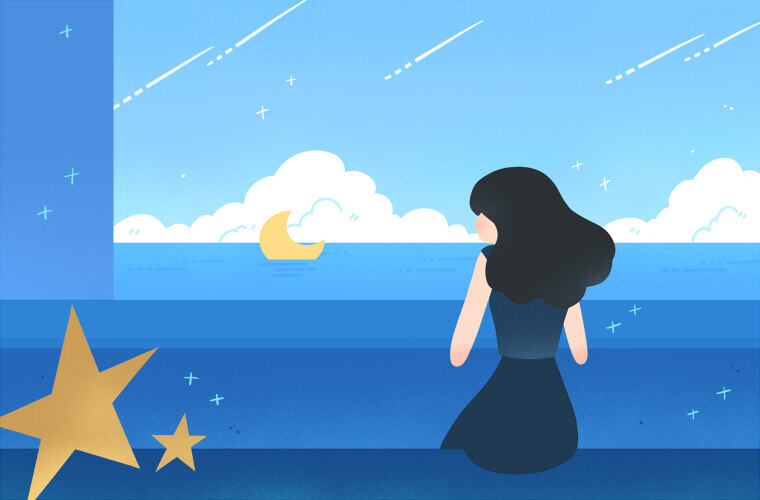
郴州第二批次(普通高中统招生)平行志愿投档分数线出炉:郴州市一中849.5分,郴州市一中北校区782分,郴州市一中南校区716.5分,郴州市...
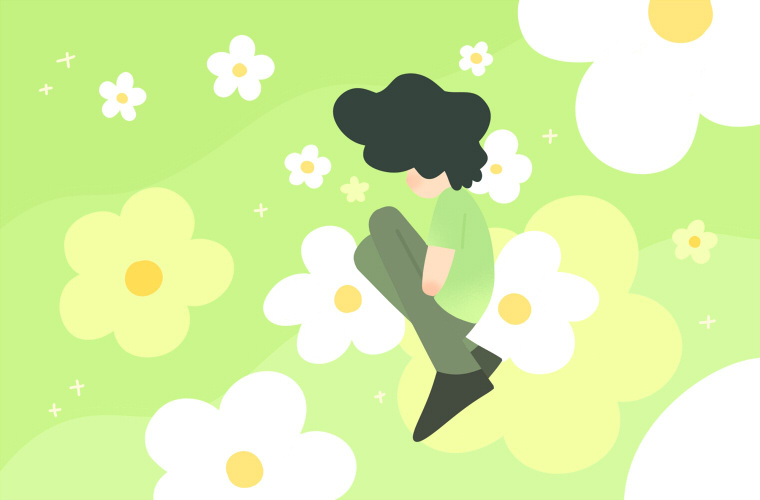
2022年郴州普高中考第二次平行志愿分数线:郴州市一中投档分数线849.5分,郴州市三中投档分数线759.5分,郴州市五雅高级中学投档分数线...

2022郴州中专学校排名榜:郴州市海纳中等职业技术学校;郴州综合职业中专学校;郴州工业交通学校;郴州市理工职业技术学校;桂阳县职业技术教育学...




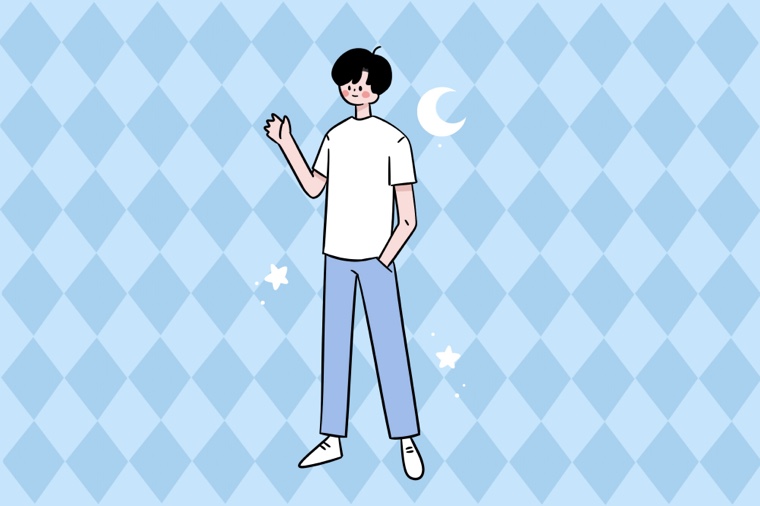
2022年郴州市招生文化成绩最低录取控制分数线:市直、北湖、苏仙区810分;资兴区690分,桂阳区707分,宜章区709分,永兴区711分。